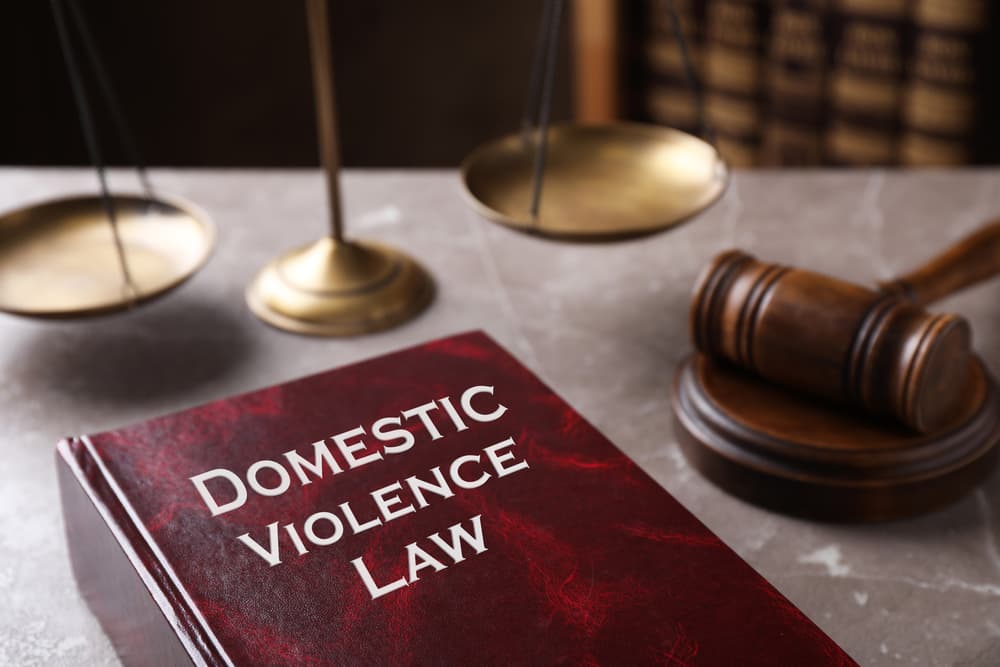In Ohio, facing charges of domestic violence does not necessarily require the intention to cause harm. The law encompasses a broad spectrum of behaviors against family members, ranging from attempts to inflict physical harm to actions that unintentionally result in injury.
This wide-ranging definition underscores the state’s commitment to addressing and preventing all forms of domestic violence, emphasizing that even actions not meant to harm can lead to serious legal consequences. If you find yourself in such a situation, seeking guidance from an Ohio Domestic Violence Defense Lawyer is crucial to navigating the legal complexities and protecting your rights.
Domestic Violence Framework in Ohio
In Ohio, the legal framework outlines domestic violence as a series of actions committed by a family or household member or an individual in a dating relationship that can seriously impact the safety and well-being of another.
The Ohio Revised Code (ORC) specifically details these actions under several key provisions:
- Bodily Injury: The law covers both attempts and reckless actions that cause bodily harm to another person, emphasizing the seriousness of physical violence within domestic settings (ORC § 3113.31(A)(1)).
- Threats of Harm: It also considers threats that put an individual in fear of imminent, serious physical harm, highlighting the impact of coercive or threatening behavior (ORC § 3113.31(A)(1)).
- Stalking and Trespass: Menacing by stalking and aggravated trespass are identified as forms of domestic violence, addressing behaviors that invade personal safety and space (ORC § 3113.31(A)(1)).
- Child Abuse: Actions that would classify a child as “abused,” including those causing mental injury that harms or could harm the child’s health or welfare, are explicitly covered, ensuring protection for minors from domestic violence (ORC §§ 3113.31(A)(1), 2151.031(D)).
- Sexually Oriented Offenses: A broad category of actions, including rape, sexual battery, and other forms of sexual misconduct, are defined as domestic violence when they occur within these relational contexts. This section also covers offenses like voyeurism, compelling prostitution, and the use of minors in nudity-oriented materials, among others, with certain acts specifically linked to sexual motivation as a significant factor (ORC § 2950.01(A)).
This comprehensive definition underscores Ohio’s commitment to addressing and preventing a wide range of abusive behaviors in domestic and intimate relationships.
By including many actions—from physical violence and threats to sexual offenses and child abuse—the law seeks to offer extensive protections to victims and hold perpetrators accountable for their actions. Seek support if you or someone you know finds yourself defending against such allegations.
What is Considered in Domestic Violence Cases?

In Ohio, when charges of domestic violence are being considered, judges meticulously evaluate the details of each case, guided by both the specifics of the incident and the legal definitions set forth by the state. This comprehensive approach ensures that a variety of factors are taken into account, each of which can significantly influence the outcome of a case and the potential consequences for those involved.
Here’s an expanded look at the key factors judges may consider in domestic violence charges:
Circumstances of the Incident
Judges look closely at what led up to the incident, including whether any form of provocation was involved, who was present during the altercation, and the severity of any injuries sustained.
Previous convictions for domestic violence, the nature of the relationship between the involved parties, and the location of the incident are also critical considerations.
These elements help judges understand the context within which the alleged domestic violence occurred, allowing for a more informed judgment.
Intentional Physical Harm
Ohio law is particularly strict when it comes to intentional harm within domestic settings.
An action aimed at causing pain or injury to a family or household member, regardless of the injury’s severity or duration, can lead to charges. The gravity of the injury, though, may influence the severity of the punishment.
This underscores the legal stance that any deliberate harm in domestic contexts is unacceptable.
Reckless Physical Harm
In instances where harm was not intentional but resulted from recklessness, the charge of domestic violence hinges on the seriousness of the injury caused.
Serious physical harm is defined in detail by law, encompassing injuries that pose a substantial risk of death, cause permanent or substantial incapacity, result in permanent disfigurement, lead to prolonged pain or suffering, or necessitate extended psychiatric treatment.
This category acknowledges the complexities of accidents within domestic settings, differentiating between minor and major unintended injuries.
Threats of Harm
The legal framework also addresses the issue of threats, recognizing them as a form of domestic violence if they involve the imminent risk of physical harm.
The perception of immediacy and the believability of the threat by the victim are important considerations.
Threats made from a distance or those conditional in nature (“if you do this, then…”) are less likely to meet the criteria for domestic violence compared to direct, in-person threats that leave the victim feeling immediately endangered.
Domestic Violence Penalties in Ohio
Ohio law stipulates clear penalties for people convicted of domestic violence, varying according to the severity of the offense. These penalties are designed both to punish and deter domestic violence, reflecting the state’s commitment to protecting its citizens.
The legal consequences escalate from misdemeanors to felonies:
Misdemeanor Penalties
- First Degree Misdemeanor: Considered the most serious misdemeanor level, offenders can face up to six months in jail and/or be fined up to $1,000.
- Second Degree Misdemeanor: This level carries a maximum penalty of 90 days in jail and/or a fine up to $750.
- Third Degree Misdemeanor: The least severe misdemeanor with a maximum of 60 days in jail and/or a fine up to $500.
Felony Penalties
- Fifth Degree Felony: This level includes penalties of six to twelve months in prison and a fine up to $2,500.
- Fourth Degree Felony: Offenders can face six to eighteen months in prison and a fine up to $5,000.
- Third Degree Felony: This represents a more severe level of offense, with nine months to three years in prison and a fine up to $10,000.
Special Consideration for Pregnant Victims
In cases where the offender knew the victim was pregnant, Ohio law mandates a minimum jail sentence ranging from six months to one year, underscoring the state’s increased protection for pregnant victims of domestic violence.
These penalties highlight Ohio’s structured approach to combating domestic violence, with the law providing a range of consequences to reflect the gravity of each offense.
By understanding these penalties, you can see the serious legal implications of domestic violence charges in Ohio, emphasizing the importance of seeking legal advice and support in such cases.
Legal Protections Beyond Criminal Prosecution for Domestic Violence Victims in Ohio
In Ohio, victims of domestic violence have access to a variety of legal remedies and protections beyond the scope of criminal prosecution. These measures are designed to offer immediate safety, financial recovery, and long-term security to those affected by domestic violence.
Protective Orders
One of the primary forms of protection is the issuance of protective orders.
Victims can apply for a temporary restraining order (TRO), which is a court order signed by a judge. This order serves to legally prevent the abuser from coming into contact with the victim, offering a layer of protection while further legal actions are considered.
Protective orders provide immediate safety measures for victims, preventing further contact and potential harm.
Civil Lawsuits
Victims of domestic violence may also pursue civil lawsuits against their abusers. This legal pathway allows them to recover financial losses incurred due to the violence, such as medical expenses, lost wages, and compensation for pain and suffering.
Custody and Support Orders
In situations where domestic violence affects family dynamics, legal adjustments can be made to custody arrangements and child or spousal support orders. These modifications are aimed at ensuring the safety of children and spouses, preventing further incidents of violence.
By altering custody and support agreements, the court seeks to protect victims from ongoing abuse while maintaining necessary financial support structures.
What Are the Legal Defenses to Domestic Violence Charges?

The available defenses to a domestic violence charge can vary based on the specifics of the case and jurisdiction but generally aim to challenge the circumstances surrounding the accusation or the accusation itself.
Here are several legal defenses your lawyer may use:
Self-Defense
The law recognizes the right of an individual to protect themselves or another person from imminent harm. This defense is grounded in the belief that the accused acted out of a necessity to prevent a real and immediate threat.
Demonstrating self-defense requires showing that their perception of danger was reasonable under the circumstances and that the force used was proportional to the threat faced.
It’s a complicated area of law. A lawyer can gather and present evidence that supports your version of events. This may include eyewitness testimony, medical records, or any other documentation that can help establish the context of the alleged incident.
False Accusations
False accusations of domestic violence are a deeply unfortunate reality that can have devastating effects on the accused. These cases often arise from complex personal dynamics, including jealousy, revenge, or as a strategy to gain leverage in family law disputes.
Defending against false accusations requires a meticulous approach to unraveling the motivations behind the allegations and demonstrating the lack of truth to these claims.
A lawyer can help you by gathering evidence that discredits the accusations, such as inconsistencies in the accuser’s story, alibi evidence, or communications that suggest an ulterior motive.
With a lawyer, you can present a clear, compelling case that highlights the absence of credibility in the allegations, protecting your reputation and legal standing.
Lack of Proof
In any criminal case, including those involving domestic violence, the burden of proof lies with the prosecution. They must establish the accused’s guilt “beyond a reasonable doubt.” This high standard means that any significant uncertainty regarding the facts of the case should lead to a verdict of not guilty.
Many defenses focus on highlighting weaknesses in the prosecution’s case, such as unreliable evidence, lack of eyewitness testimony, or inconsistencies in the accuser’s account.
By casting doubt on the evidence presented, a lawyer can emphasize the gap between suspicion and proof required for conviction, advocating for your acquittal based on the principle of innocence until proven guilty.
Wrong Suspect
Mistaken identity or incorrect accusations can occur for many reasons, including misinterpretation of events, prejudicial assumptions, or errors in the investigation process. Defending yourself when you have been wrongfully identified as the perpetrator of domestic violence involves closely examining the evidence used to link you to the offense and identifying discrepancies or alternative explanations.
A lawyer may help you by presenting alibi evidence, challenging the reliability of eyewitness identification, or leveraging forensic evidence that exonerates you. It’s about ensuring that justice is served by protecting you from being wrongfully convicted based on flawed assumptions or evidence.
De Minimis Infractions
In legal terms, “de minimis” refers to matters too trivial to merit consideration by the court.
In the context of domestic violence, this defense might be applied to actions that, while technically fitting the definition of domestic violence, are considered too minor to justify legal action. This defense acknowledges the seriousness of domestic violence as a social issue while arguing that not every dispute or minor altercation should escalate to a criminal proceeding.
A lawyer can help you provide context to the alleged incident, arguing that it does not rise to the level of criminality or pose a significant threat to public safety or the alleged victim.
It’s a delicate balance, advocating for the recognition of the seriousness of domestic violence while also arguing for a proportionate response to the specific circumstances of the case.
Consent
Consent is a defense that rarely applies in domestic violence cases due to the inherent power imbalances and the serious nature of the allegations. However, in instances where the behavior in question involves actions that both parties agreed upon, this may be considered.
You cannot use consent as a defense in situations involving serious bodily harm or when the law does not recognize the possibility of consent due to the relationship’s dynamics or the severity of the act.
Contact an Ohio Criminal Defense Lawyer

If you find yourself facing accusations of domestic violence, you need a skilled and compassionate legal team by your side. Contact an Ohio criminal defense lawyer today to discuss your case and learn how you can overcome these challenging circumstances.

